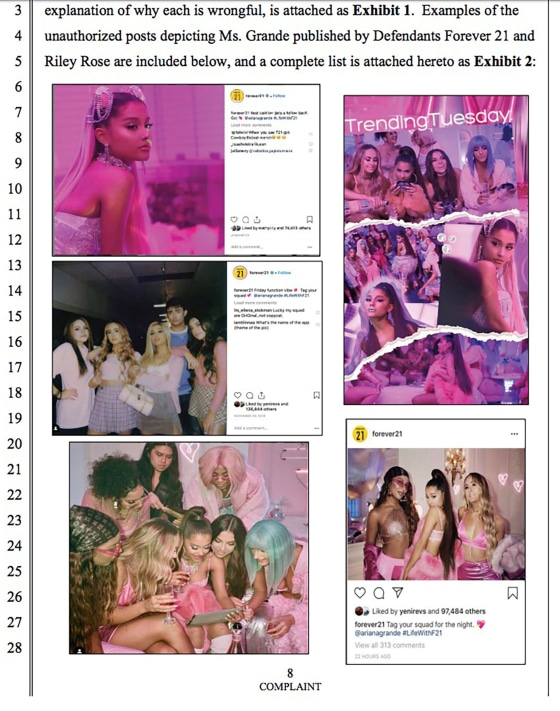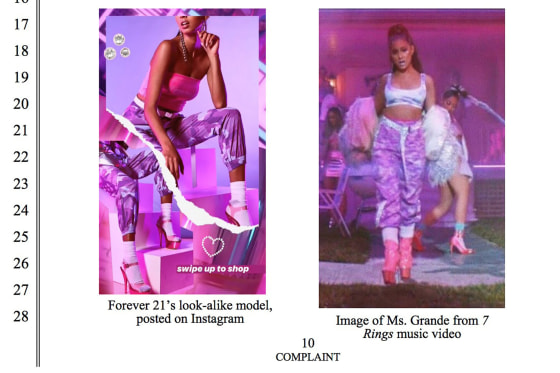The retailer improperly portrayed a partnership with the popstar
Everyone’s favorite pop princess and fast-fashion hub are at war. After saying thank you, next to an endorsement deal with Forever 21, Ariana Grande is suing the company for $10 million overusing her “likeness” in a campaign she did not agree to.
Forever 21 reached out to Grande in December 2018 about a social media-driven marketing campaign. The discussion came during the smashing success of Grande’s single 7 Rings and the groundbreaking accompanying music video, with undeniably unique lighting, outfits, dances, and sets.
According to court documents, the deal between the retailer and Grande’s managers “never came to fruition because the amounts that Forever 21 offered to pay for the right to use Ms. Grande’s names and likeness were insufficient for an artist of her stature.”

After being rejected by Grande, Forever 21 went forward with the campaign and managed to depict a Grande-endorsed deal. The court documents say that the defendants did not just go for a similar look to Grande—perhaps an oversized sweatshirt and iconic ponytail would fall into this category—but “used a model who looks strikingly similar to Ms. Grande.
Said model is also shown wearing a similar hairstyle to the one Ms. Grande wore in the 7 Rings video, dressed in a top designed to look like a top worn by Ms. Grande in numerous well-known photographs… wearing a distinctive hair accessory…. Using a pose that is virtually identical to the pose in which Ms. Grande was photographed… 7 Rings audio played over the post… the distinctive “7” from 7 Rings video displayed in the background,” as well as other similarities, culminating in nine separate complaints about one campaign.

Along with launching a campaign copying the look, sound, and aesthetic of the 7 Rings video, Forever 21 had also been posting screenshots and grabs from the thank u, next video to their Instagram account, alluding that some type of partnership had occurred between Grande and Forever 21 for costumes for the video.
Grande contacted the company on March 15, 2019, and again on April 3 to have the unauthorized content removed. The defendants did not remove the content until April 17th, which gave them about 14 weeks of content that appeared to be sponsored.
